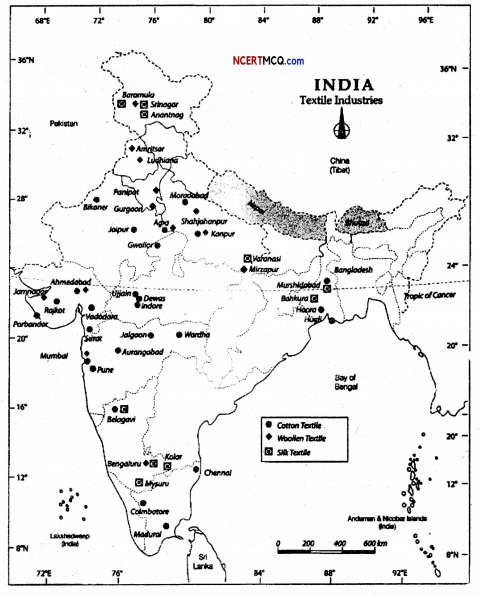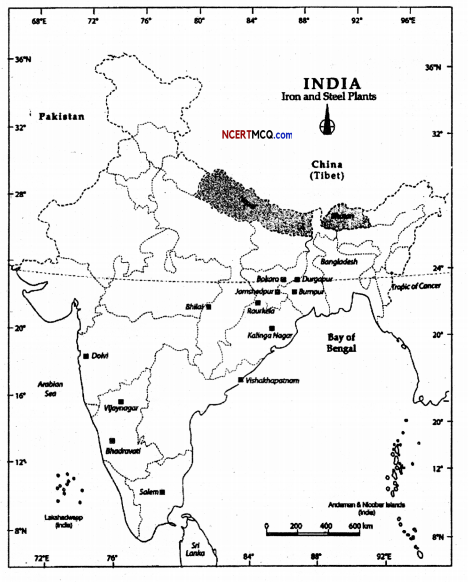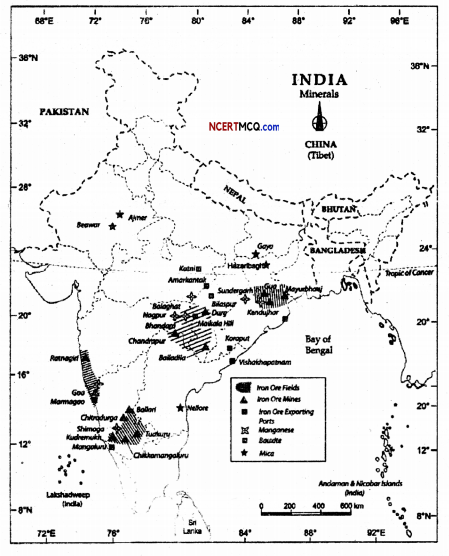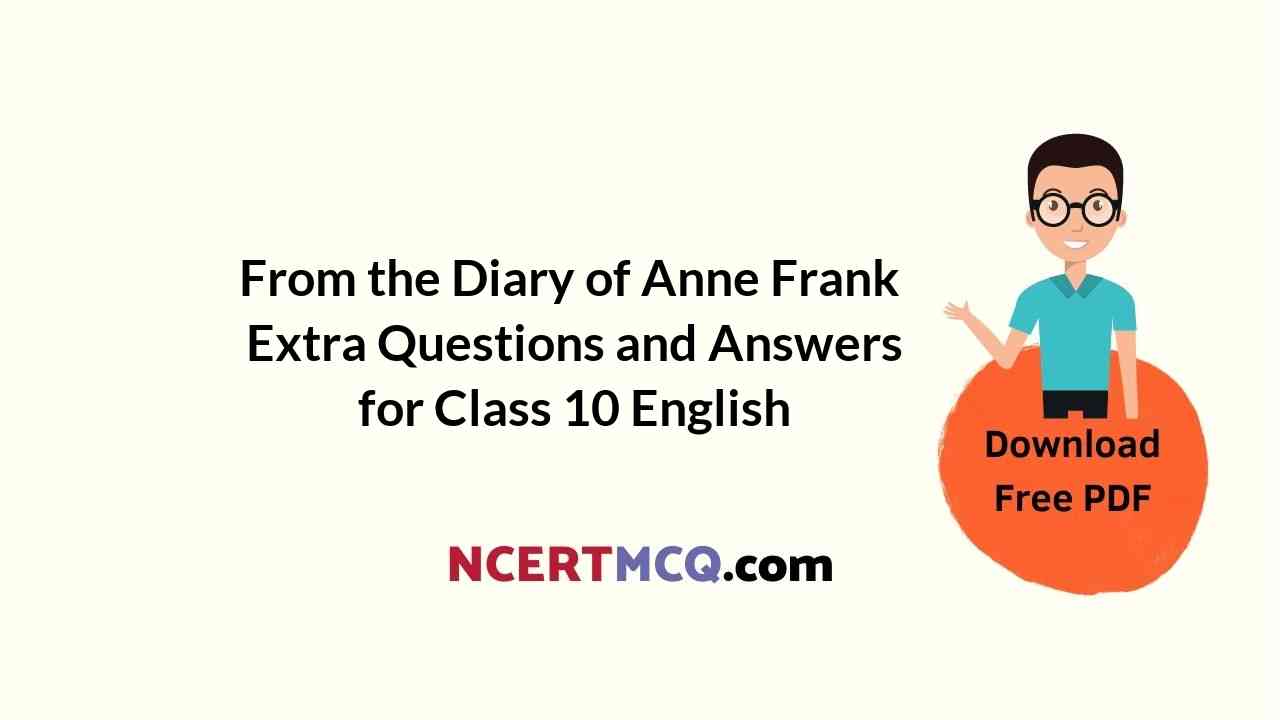Here we are providing Bholi Extra Questions and Answers Class 10 English Footprints Without Feet, Extra Questions for Class 10 English was designed by subject expert teachers. https://ncertmcq.com/extra-questions-for-class-10-english/
Bholi Extra Questions and Answers Class 10 English Footprints Without Feet
Bholi Extra Questions and Answers Short Answer Type
Bholi Class 10 Extra Questions Question 1.
Why was Sulekha nicknamed Bholi?
Answer:
Sulekha was nicknamed Bholi because she was a simpleton. She was mentally slow and anybody could befool her.
Bholi Extra Questions Question 2.
Why did Sulekha start stammering?
Answer:
Sulekha was a baby when she fell down from a cot. Her brain was damaged. She could not speak till the age of five years. She was mentally slow and lacked confidence. That is why she started stammering.
Bholi Class 10 Extra Questions And Answers Question 3.
Why was Ramlal worried about Bholi and not about his other children?
Answer:
All other children of Ramlal were healthy and good looking. Bholi was the only girl who was neither intelligent nor good looking. She was a simpleton, she stammered also. Ramlal was extremely worried about her future.
Bholi Extra Questions And Answers Question 4.
Why did the Tehsildar come to Ramlal’s village? What did he ask Ramlal to do?
Answer:
The Tehsildar came to Ramlal’s village to inaugurate the primary school. He asked Ramlal to set an example for others by sending his daughters to school.
Bholi Important Questions Question 5.
What was Ramlal’s wife reaction?
Answer:
His wife was an orthodox village woman. She was against the idea of sending her daughters to school. She thought that education would affect their marriage prospects adversely.
Bholi Chapter Class 10 Extra Questions Question 6.
Why did she agree to send Bholi to school?
Answer:
She thought that education would ruin the marriage prospects of their daughters but Bholi was a simpleton. There was no possibility of her marriage. So she agreed to send Bholi to school.
Class 10 Bholi Extra Questions Question 7.
Why was Bholi reluctant to go to school with her father?
Answer:
Bholi did not know what a school was like. She had never heard about it. When her father held her hand and told her that they were going to school, she got frightened fearing to be dragged out of the house. So she was reluctant to go to school with her father.
Extra Questions Of Bholi Question 8.
What made her feel that she is going to a better place than her home?
Answer:
Bholi never got attention before that day. She was bathed and given a clean dress. Oil was rubbed into her dry and matted hair. This made her feel that she was going to a better place than her home.
Bholi Class 10 Important Questions Question 9.
Did Bholi enjoy her first day in school? What made her happy on this very day?
Answer:
It was a mixed day for Bholi. She was happy to see the girls of her age. She was fascinated with the colourful pictures on the wall of the classrooms. But when the teacher asked her name she could not answer properly and other girls laughed at her. She cried. But her teacher’s soft words made her happy on this very day.
Extra Questions Of Bholi Class 10 Question 10.
Which incident touched her heart?
Answer:
All the girls were laughing at her. The teacher called her by name in her soft and soothing voice. This touched her heart because she had never been called in that loving way.
Question 11.
“Her heart was throbbing with a new hope and a new life”.
(i) What was the new hope and new life?
(ii) What did she relate the pictures in the school wall to?
Answer:
(i) The new hope was that she would become learned like others. People would listen to her. She would be able to speak without stammering. Now she would not be treated as inferior to others.
(ii) She related the pictures of the school wall with the real things around her. The goat was black like the goat of their neighbour. The cow was just like their Lakshmi. The horse was brown just like the Tehsildar’s horse.
Question 12.
How does she become a masterpiece?
Answer:
The teacher transformed a simpleton girl into a well-behaved and confident girl. Bholi was a foolish and stammering girl. The teacher put in all her hard work in transforming her into a mentally strong and well-educated girl. It was really a masterpiece of the teacher.
Question 13.
Why did Bholi look at Bishamber with cold contempt?
Answer:
Bholi looked at Bishamber with cold contempt because he had demanded 5000 to get married to her. Bholi saw how her father got humiliated; she realised that Bishamber was greedy and exploiting her father due to her look.
Question 14.
Why did Bishamber’s marriage with Bholi not take place?
Answer:
Bishamber’s marriage with Bholi did not take place because Bholi refused to marry a greedy man. She also realised that Bishamber was trying to exploit her father due to her looks.
Question 15.
Why did Bholi’s parents accept Bishamber’s proposal? Give three reasons.
Answer:
Bholi’s parents were always worried about her marriage as she was not beautiful and intelligent. Bishamber was wealthy and did not demand any dowry also. So they accepted the proposal after a little discussion.
Question 16.
Why did Bholi talk very little as a child?
Answer:
Bholi could not speak till she was five, and when at last she learnt to speak, she stammered. The other children would make fun of her and even mimicked her. So she used to talk very little.
Question 17.
How did Bholi react when her father caught her by the hand to take her to school? Why?
Answer:
When Ramlal caught Bholi by the hand to take her to school, she was frightened. She did not know what a school was like. She thought her father was turning her out of the house. She shouted in terror and pulled her hand away from her father’s grip.
Question 18.
What kind of a mother, do you think, Ramlal’s.wife was?
Answer:
Ramlal’s wife’was an uncaring and callous mother. She never showed the affection to Bholi that she deserved as her child. She felt that the girl with pox-marks and lack of sense was a burden. That’s why she sent her to school so that the teachers took the trouble to handle the girl. Even when it was the matter of her marriage, the mother showed no sympathy and consented to get her married to an old and lame man.
Question 19.
Give example from the text to show that Bholi was a neglected child.
Answer:
Due to her physical appearance Bholi was neglected by her parents. New dresses were made for her sisters; the old dresses of her sisters were passed on to her. No one ever cared to mind or wash her clothes. She was sent to school as her mother believed her to be a burden.
Question 20.
Why is Bholi’s father worried about her?
Answer:
Bholi’s father is worried about her as she has neither good looks nor intelligence. He did not know how he would find a suitable groom for her.
Question 21.
For what unusual reasons is Bholi sent to school?
Answer:
Bholi is sent to school because there is little chance of her getting married because of her ugly face and lack of sense. Also her father has to send her to school as the village headman has commanded him to do so.
Question 22.
Does Bholi enjoy her first day at school?
Answer:
Yes, Bholi enjoys her first day at school as she was glad to find so many girls almost of her own age present there. She hoped that one of these girls might become her friend.
Question 23.
Does she find her teacher different from the people at home?
Answer:
Yes, she finds her teacher different from the people at home as the teacher was affectionate, polite and this touched her heart.
Question 24.
Why do Bholi’s parents accept Bishamber’s marriage proposal?
Answer:
Bholi’s parents accept Bishamber’s marriage proposal because if they don’t accept it, she would not be married for the rest of her life.
Question 25.
Why does the marriage not take place?
Answer:
The marriage does not take place because the groom demanded dowry.
Question 26.
Bholi had many apprehensions about going to school. What made her feel that she was going to a better place than her home?
Answer:
Bholi had many apprehensions about going to school. She remembered how their old cow, Lakshmi, had been turned out of the house and sold. When she got a clean dress, was bathed and her hair was properly done with oil, only then she felt that she was going to a better place than her home.
Question 27.
How did Bholi’s teacher play an important role in changing the course of her life?
Answer:
Bholi’s teacher played an important role in changing the course of her life. She was polite and friendly which touched her heart. She encouraged her every time and was affectionate towards her. The teacher transformed her into a confident person who could read, write and speak clearly. This gave her the required confidence. Moreover, teacher’s appreciation and encouragement helped her overcome her own morale.
Question 28.
Do you think the characters in the story were speaking to each other in English? If not, in which language were they speaking? (You can get clues from the names of the persons and the non-English words used in the story.)
Answer:
No the characters in the story do not speak English. Their original language in Hindi. They use words like Pitaji, Izzat, Tehsildar, etc.
Bholi Extra Questions and Answers Long Answer Type
Question 1.
“Put the fear out of your heart and you will be able to speak like anyone else.” These words of encouragement from the teacher highlight that change of social attitude and encouragement can help a child like Bholi to become confident and face the world bravely. With reference . to the story ‘Bholi’ write how the social attitude towards Bholi made her an introvert. What should be done to help such children to face the world bravely?
Answer:
Bholi was neglected by her parents on account of her looks and lack of intelligence. She used to stammer so the other children made fun of her and mimicked her. As a result she talked very little. It was a daunting task for the teacher to encourage Bholi. The teacher talked to her affectionately and friendly. She assured her if she put the fear out of her heart and she would be able to speak like anyone else.
Through the efforts of years Bholi became a transferred personality. She refused to marry a greedy man who was trying to exploit her father due to her looks. Such children should be constantly encouraged by the parents, teachers and even by the other relations. They must be taught to fight back their handicaps rather to accept it as facts.
Question 2.
What social attitudes are presented in the story, ‘Bholi’? How does Bholi’s teacher help her overcome these barriers?
OR
God created this world but teachers create human beings. How does Bholi’s teacher succeed in changing the course of her life?
Answer:
Bholi was neglected by her parents on account of her looks and lack of intelligence. She was sent to school as her mother thought her to be a burden and let the teachers at school worry about her. Ironically, the teachers transformed her life completely. God created this world but teachers create human beings.
Bholi did not know what exactly a school was and what happened there, in the class when her teacher asked her name, she stammered and began to cry. She kept her head down throughout the class. The teacher was very encouraging and friendly to her and this made her gain confidence to speak.
She started seeing a ray of hope for a new life. After years of gaining education and with the help of her teacher, Bholi turned into a confident girl. She no longer stammered and could speak properly. She even had the courage to refuse marrying the lame old man because he was greedy and asked money from her father to marry her.
Question 3.
“Don’t you worry, Pitajil In your old age I will serve you and mother”. Through this statement the narrator wants to highlight the moral values Bholi imbibed with. Based on the reading of the lesson, what made Bholi aware of her rights and how did she use them?
Answer:
Bholi became an introvert child who lacked confidence. She was neglected and even made fun of due to her appearance and lack of intelligence. Years of education made her bold and confident. She got an aim in her life. When she refused to marry greedy Bishamber, her father became worried. She assured her father not to worry and promised that she would take care of him and her mother in their old age.
She told that she would teach in the school where she learnt so much. During her education Bholi’s teacher made her aware of her rights as well as duties. She faced the challenge of rejecting greedy Bishamber with determination and confidence. Thus she protected her self-respect and integrity.
Question 4.
Education is always a great asset in the life of a woman. How did Bholi, an educated girl free the challenge posed by Bishamber’s greed?
OR
School education turned Bholi from a dumb cow into a bold girl. How did she save her father from a huge expense and become his support in his old age?
Answer:
Ironically, Bholi was sent to school as her mother believed she was a burden and let the teachers at the school worry for her. The teacher showed affection and encouraged her to shed her fear. She was assured by her teacher that she would speak like others one day.
Years of hard work transformed Bholi into a bold and confident young woman. Bishamber refused to marry Bholi due to her appearance and demanded five thousand rupees. Bholi saw how her father was humiliated for no reason. She refused to marry a greedy, mean and contemptible coward. She assured her father that she would serve him and her mother in their old age. She had a mission in her life; she would spread the light of education in her village.
Question 5.
Write a character sketch of Sulekha.
OR
On the basis of your understanding of the story, sketch the character of Bholi.
OR
Write a character sketch of Bholi.
“Bholi’s whole personality underwent a complete transformation towards the end of the story”. Explain.
Answer:
Bholi’s real name was Sulekha but she was called Bholi, the simpleton as she was a backward child. She started speaking only when she turned five but she stammered when she spoke and as a result she was always mimicked or made fun of by the other children. Therefore, Bholi talked very little.
Bholi did not know what exactly a school was and what happened there, in the class when her teacher asked her name, she stammered and began to cry. She kept her head down throughout the class. The teacher was very encouraging and friendly to her and this made her gain confidence to speak. She started seeing a ray of hope for a new life.
After years of gaining education and with the help of her teacher, Bholi turned into a confident girl. She no longer stammered and could speak properly. She even had the courage to refuse marrying the lame old man because he was greedy and asked money from her father to marry her. On seeing her father worried about her marriage, she said that he need not worry as she would teach in the same school where she learnt so much and would take care of him and her mother in their old age.
Question 6.
“Dowry is a negation of the girl’s dignity”. Explain this statement in the light of the story of ‘Bholi’.
Answer:
Initially Bishamber did not demand dowry to get married to Bholi. He was a widower, having children and of the age of Ramlal. But during the marriage ceremony he happened to see the face of Bholi. He bargains if he was given five thousand rupees he will marry the girl. Bholi’s father Ramlal placed his turban at his feet but he refused.
A girl is considered a liability in her own natal home due to prevalence of the custom of dowry practice. Some parents are unwilling to give higher education to their daughter as they have to search for ‘ highly educated boy for marriages and a better educated boy will demand more dowry which creates unnecessary problefn, for parents.
Besides, the boy who receives huge amount of dowry may think of himself as more dignified as having a higher status, greater prestige and more respectful than the girl. Subsequently the girl develops inferiority complex. Fortunately, Bholi refuses to marry greedy Bishamber and decides to serve her parents instead in their old age. ‘
Question 7.
How did the teacher encourage Bholi on her first day in school?
OR
On the basis of your understanding of the story, describe the role played by the teacher in the life of Bholi.
OR
What values did the teacher display in transforming Bholi into a confident girl?
Answer:
Bholi was neglected by her parents on account of her looks and lack of intelligence. She was sent to school as her mother thought her to be a burden and let the teacher at school worry about her. The teacher in the school asked her to tell her name. She stammered -and began to cry.
The teacher showed her affection and encouraged her in a friendly manner to put aside her fear. Bholi somehow told her name. The teacher assured her that she would be able £o speak like everyone else one day. Bholi was surprised. The teacher asked her to come to school regularly. Love and encouragement shown by the teacher brought out drastic changes in Bholi’s personality. Within a few years she became so confident that she refused to marry a greedy man.
Question 8.
‘Love and encouragement make the impossible possible. Explain this statement on the basis of the story ‘Bholi’.
Answer:
Bholi was sent to school as her mother thought her to be a burden. She was neglected by her parents as she was not beautiful and lacked intelligence. The teacher in the school asked her to tell her name. She stammered and began to cry. The teacher showed her affection and encouraged her in a friendly manner to put aside her fear.
Bholi somehow told her name. Bholi was surprised. The teacher asked her to come to school regularly. Love and encouragement shown by the teacher brought out drastic changes in Bholi’s personality. Within a few years she became so confident that she refused to marry a greedy man.
Question 9.
No one is always foolish. Time and circumstances give us intelligence and change out. personality. Explain with reference to ‘Bholi’.
Answer:
Yes, it is quite right that no one is always foolish. Time decides everything. Our maturity and knowledge depend on our experience. Experience is always based on circumstances. Time and experiences teach us different things and make life perfect.
With out experience or practical knowledge all bookish knowledge is in vain. It is never used. There are many such examples in our real life that prove this statement correct. Here I would like to share my own experience about a very simple doctor.
He started his practice very slow in a poor area. Many famous doctors made fun of him. Time passed and gradually he became famous in the neighbouring areas. His treatment was not so costly. Once a very serious accident occurred near his hospital and the people brought the injured person to a costly hospital.
But his condition was very serious and the doctor refused to admit him. Then that doctor took the case and tried his best to save him. At last he succeeded. All were surprised to see and listen to it.
Question 10.
Why did Bholi at first agree to an unequal match? Why did she later reject the marriage? What does this tell us about her?
Answer:
This is a normal practice in India that girls seldom oppose their parent’s choice for a groom. The upbringing of daughters does a kind of mental conditioning which doesn’t give them enough courage to rebel against their parent’s wish. Bholi more or less followed the tradition of being an ideal Indian girl ,and agreed to an unequal match because her mother felt she was lucky to get a well-to-do groom who owned a big shop, had a house of his own and had several thousands in the bank. Moreover, he was not asking for any dowry.
Bholi also heard her mother saying that he did not know about her pox-marks and her lack of sense. If the proposal was not accepted, she might remain unmarried all her life. Later on when the groom bared his greed to everyone, it repulsed Bholi and she opposed the marriage. Unlike her sisters, Bholi is educated and has a mind of her own. She is as independent as any other modern girl of a big city.
On seeing her father pleading and getting humiliated, she decided not to marry him. This tells us that she loves and respects her parents, has self respect and knows what is right or wrong and is able to take a wise decision.
Question 11.
Bholi’s real name is Sulekha. We are told this right at the beginning. But only in the last but one paragraph of the story is Bholi called Sulekha again. Why do you think she is called Sulekha at that point in the story?
Answer:
The word Bholi means a simpleton. Throughout the story she had been a simpleton, hardly expressing her opinion in any matter. The word Sulekha means the person with beautiful sense of letters. In this story this word has a larger meaning. It depicts being a literate, intelligent and mature individual. After her education Bholi has really changed to Sulekha and her assertion during marriage is her announcement to the world that she is no more a Bholi but Sulekha.
Question 12.
Bholi’s teacher helped her overcome social harries by encouraging and motivating her. How do you think you can contribute towards changing the social attitudes illustrated in this story?
Answer:
Bholi’s teacher helped her overcome social barriers by motivating and encouraging her. The same act can be performed by the young generation too. If, we the new generation, identify the social evils, like corruption, dowry, child marriage, unemployment, poverty, gender discrimination and decide to fight against them; it will revolutionise the system. Thus, we can remove all the above-mentioned evils from the society.
Question 13.
Should girls be aware of their rights, and assert them? Should girls and boys have the same rights, duties and privileges? What are some of the ways in which society treats them differently? When we speak of ‘human rights’, do we differentiate between girls’ and boys’ rights?
Answer:
Yes, girls should be aware of their rights and assert them. The girls and boys should have the same rights. There should not be any gender discrimination. But, even today girls are deprived of education, nourishment in food in comparison to boys. No doubt that in rural India there is still a gender bias but the new generation is aware of it. There should be no differentiation in terms of humans rights between girls’ rights and boys’ rights.













